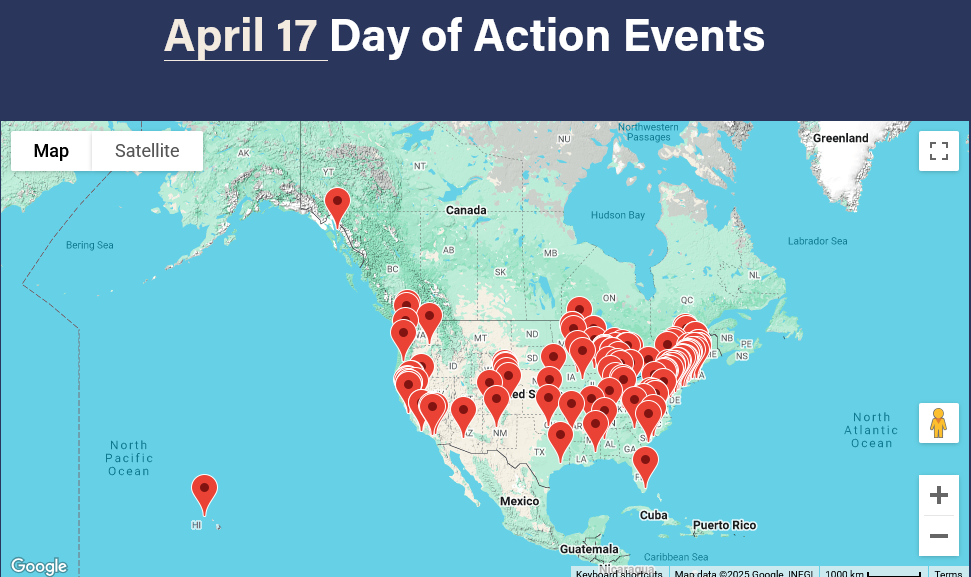April brought deep cuts to universities in Florida, Michigan and elsewhere.
Although changes driven by the Trump administration that have included cutting grant funding and capping research reimbursement costs have driven hiring freezes and other changes, the cuts below are not directly tied to Trump. However, Trump’s agenda has directly prompted some job losses. For example, the University of Montana eliminated 42 positions after Congress excluded the Defense Critical Language and Culture Program from a government funding bill.
But most of the below job cuts, program eliminations and other changes are instead tied to declining enrollment, rising operating costs and other factors challenging the sector.
Jacksonville University
Some of the deepest cuts in April were at Jacksonville University, which slashed 40 faculty jobs.
Officials also announced plans to shutter JU’s music and theater programs in a cost-cutting effort, which, coupled with faculty layoffs, is expected to save the private university $10 million.
President Tim Cost called the move “the most robust strategic review of our academic offerings we have ever done” in an April 15 video posted to Facebook where he cast the cuts as “strategic recalibration.” Cost argued that the move would improve academics and “streamline” expenses.
Cost argued that higher education as a sector is beset with challenges and referenced hard choices at the Massachusetts Institute of Technology, Cornell University, Harvard University, Johns Hopkins University and Pennsylvania State University. However, with the exception of Penn State, hiring freezes and other changes at those institutions have been driven by changes to federal research funding. (Jacksonville is not a research university, while those institutions are.)
Unmentioned in Cost’s video were concerns that the university could close, which were raised in JU’s most recent audit. Specifically, auditors noted that the university fell out of compliance with its debt agreements. Violations of such covenants can result in debt becoming due immediately. Jacksonville had nearly $144 million in debt at the end of fiscal year 2024.
Despite the university’s financial challenges, enrollment is up. In fall 2015, JU enrolled 4,048 students, federal data shows. This spring, that number was 4,601, according to a bond filing.
JU’s deep cuts have been met with anger and a sense of betrayal from faculty members.
“I really believed that this was a place that believed in its mission,” an anonymous faculty member who was laid off told local media. “And now it is so completely changing that mission. And what’s worse is they are gaslighting us into pretending like this has always been the plan.”
Although faculty voted no confidence in Cost, college officials have argued that changes at JU have followed its shared governance processes, which included faculty input, and that such changes are necessary to drop low-performing programs and prioritize other academic offerings.
Concordia University
The private Christian university plans to lay off 46 employees across two states.
Concordia University—which has its primary campus in Wisconsin—informed the Michigan Department of Labor and Economic Opportunity in a letter it would move forward with plans to lay off 41 employees at its Ann Arbor campus on May 31 or “during the 14-day period thereafter.” Another five employees will be laid off in Wisconsin, according to a similar filing there.
Concordia announced last summer that most Ann Arbor academic programs would go online.
Concordia has navigated financial struggles in recent years and closed three campuses it operated in Wisconsin in 2023. However, officials have sought to reassure community members that there are no immediate plans to close the Ann Arbor campus.
“Concordia Ann Arbor will continue to offer a variety of degree options in 2025 and beyond,” reads a university page on frequently asked questions. The page added that “Concordia can no longer sustain multi-million-dollar operational losses at the Ann Arbor campus.”
California State University, Sacramento
Facing state budget cuts, the public university in California made a series of personnel changes in April.
“Due to the severe state budget cuts and the escalating labor costs we are facing for the upcoming fiscal year, 28 management (MPP) positions have been eliminated, merged, or not retained. These actions included 15 MPP employees who were released from their positions today,” Sacramento State president Luke Wood wrote to the campus community April 7.
More changes are on the horizon as Sac State navigates a $37 million budget deficit, amid cuts to state appropriations that will ultimately hit all 23 California State University system members.
Franklin & Marshall College
Last month Franklin & Marshall College laid off 16 staff members, LancasterOnline reported.
The private Pennsylvania institution laid off staff members in the library, as well as areas such as facilities and event services, but appeared to spare faculty, according to a list obtained by the news outlet. Officials told LancasterOnline that F&M was exercising “responsible management” by “reducing the number of our employees to better match the size of our student body.” (Like many other colleges, Franklin & Marshall’s enrollment has slipped in recent years from 2,209 students in fall 2014, according to federal data, to around 1,900 currently.)
Some other jobs were also changed from a 12-month to a 10-month schedule.
University of Akron
Amid efforts to trim $22 million from its budget by the end of fiscal year 2026, the University of Akron is eliminating its physics and anthropology departments, Cleveland.com reported.
Approximately 20 full-time faculty members across the university have also accepted voluntary separation agreements, the news outlet confirmed. An advisory committee to help steer faculty cuts and ideas for generating revenue has pitched buyouts as a possible alternative to layoffs.
University of Toledo
Elsewhere in Ohio, the University of Toledo is suspending nine programs due to a state politics and policies.
The public university announced last month that it’s pausing admission to the Africana studies, Asian studies, data analytics, disability studies, Middle East studies, philosophy, religious studies, Spanish and women’s and gender studies programs, to comply with legislation, Senate Bill 1, that recently passed and became law.
All affected programs will remain available as minors, according to the university website.
SB 1—controversial and sweeping legislation that affects both program offerings and campus speech—bans diversity efforts in higher education and requires colleges to drop undergraduate programs that yield fewer than five degrees annually, on average, over a three-year period.
Unrelated to SB 1, Toledo also announced it was suspending admissions to a dozen other undergraduate and graduate programs, following a recent review of academic offerings.
Portland Community College
More than a dozen programs could be cut at Oregon’s largest community college.
Portland Community College is currently weighing a plan to eliminate as many as 14 programs in a cost-cutting effort, local CBS affiliate KOIN reported. So far, PCC has identified two programs that will be eliminated within two years: music and sonic arts, and gerontology.
Other potential programs on the chopping block at PCC are anthropology, art, Chinese, criminal justice, electronic engineering technology, English for speakers of other languages, general science, German, machine manufacturing technology, Russian, theater arts and welding.
Middlebury College
Officials at the private liberal arts college in Vermont announced a series of cost-cutting moves last month, including employee buyouts, in an effort to plug a projected $14 million budget hole.
Middlebury officials blamed the deficit on declining enrollment and increased operating costs.
Other fiscal moves include reducing Middlebury’s retirement matching contributions, shedding rental property leases and evaluating health insurance plans for possible changes. Altogether, officials said initial efforts are expected “to realize more than $10 million” in savings.
Canisius University
The private Jesuit university in Buffalo, N.Y., is offering buyouts to staff as part of a plan to identify $15 million in savings across the next two fiscal years, NBC affiliate WGRZ reported.
Canisius has also sought to refinance $55 million in debt recently.









